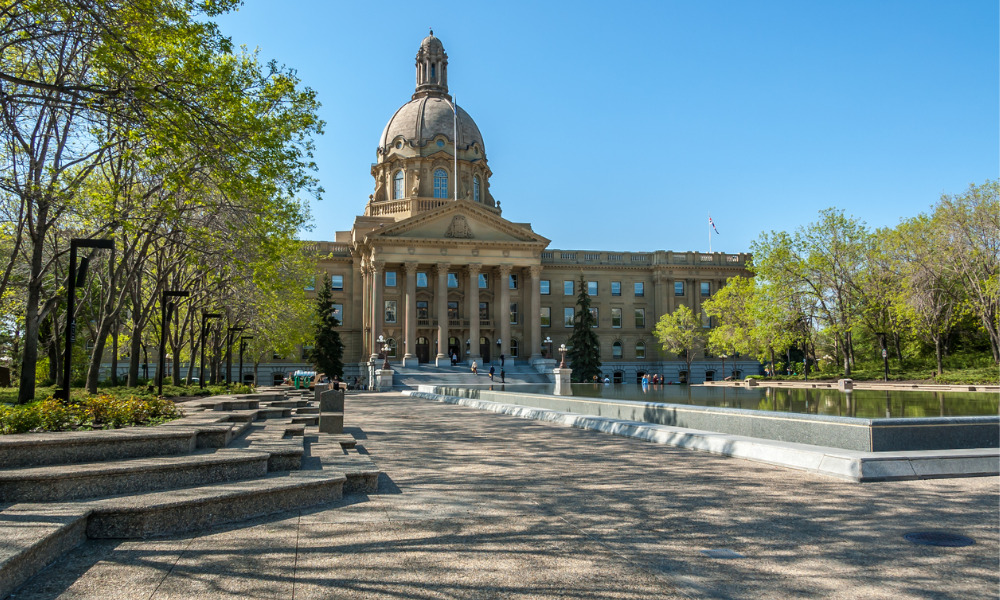Man was protesting the provincial government’s COVID response when arrested

The Canadian Constitution Foundation has weighed in on whether the arrest of a protester critical of the Alberta government’s COVID-19 response infringed upon his constitutional rights to free expression and free assembly.
The incident involved Cody Haller, an Alberta man who on May 10 staged a protest in a plaza outside the legislature in Edmonton. Haller was protesting the economic impact of prolonged business closures alongside around 40 to 50 individuals.
Three sheriffs approached Haller to inform him that he was breaching an order under Alberta’s Public Health Act, which banned outdoor gatherings of more than 15 people in a group and which directed that individuals stay at least two metres apart. When Haller refused to stop protesting, the law enforcement officers carried him to their vehicle and took him to the police station.
Haller’s charges included contravention of the Public Health Act and interfering with law enforcement. Videos of the incident showed that Haller was not within two metres of any other individual, so the issue revolves upon whether the restriction on the size of the gathering breaches Haller’s constitutional rights, said the CCF.
“It is my freedom and my right to assemble and to express my concerns as well as any objections that I have to a government that portrays itself to be acting in all our best interests,” Haller said.
The Canadian Constitution Foundation agrees. The Charter of Rights and Freedoms protects the rights to freedom of expression and freedom of peaceful assembly and permits lawful restrictions only if these restrictions are reasonable and demonstrably justified in a free and democratic society, the group said.
The CCF stated that the Constitution of Canada safeguards these rights, even while the pandemic persists. Haller’s freedom to express his views should be protected because his expression was not violent, the CCF argues.
Protecting the right to freedom of assembly ensures that protesters may call attention to bona fide wrongs to public interests and that the government may gauge how the public may feel about certain issues. In this case, an outcry over the incident led the provincial government to amend the public health order to allow outdoor gatherings of up to 50 individuals in a single location.
Upon the issue of whether the original limitation of outdoor gatherings to 15 individuals is demonstrably justified, the CCF argues that the government should show that there is a pressing and substantial concern for the restriction on the constitutional right and that the law is proportional.
While the government may show statistics that prove how quickly and easily the COVID-19 virus spreads to demonstrate a pressing and substantial need, the CCF said that it may be more challenging for the government to demonstrate that the restriction to 15 people is rationally connected to the government’s objective of limiting the spread of the virus. The CCF even said that gatherings bigger than 50 individuals should likewise be permitted, as long as protesters stay physically distant from one another.
“If a two-metre distance can prevent virus spread, then a group of 40 people protesting while two metres apart from each other would be no more likely to lead to new infections than a group of 15 people spaced two metres apart,” said the CCF.










